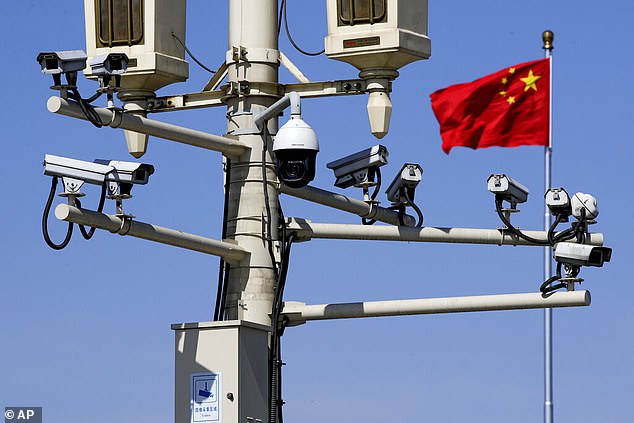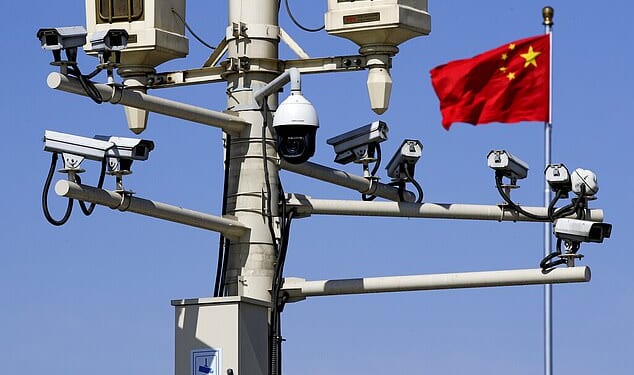Britain will join the illustrious ranks of North Korea, China and Taliban-ruled Afghanistan by declaring it compulsory for every citizen to have a government-issued digital ID card.
The ‘Brit card’ is a fresh attempt by Sir Keir Starmer to clamp down on illegal immigration, allowing the government to clearly verify a citizen’s right to live and work in the UK.
The plan, which is expected to be announced fully in a speech on Friday, will likely be subject to consultation before coming into action.
Home Secretary Shabana Mahmood is already supportive of the idea, which will require anyone enrolling in a new job to first present the digital ID to potential employers.
The card would then be automatically checked against a central database of those entitled to work in the UK – weeding out people who have tried to fake their physical ID documents to get a job.
‘My long-term personal political view has always been in favour of ID cards,’ Ms Mahmood said.
‘We do have to deal with the pull-factors that are making the UK a destination of choice for those that are on the move around the world,’ she continued.
‘I want to make sure that we can clamp down on that. I think that a system of digital ID can also help with illegal working enforcement of other laws as well. I do think that that has a role to play for dealing with our migration.’

A Chinese national flag flutters near the surveillance cameras mounted on a lamp post in Tiananmen Square in Beijing

The ‘Brit card’ is a fresh attempt by Sir Keir Starmer to clamp down on illegal immigration
But the Prime Minister was understood to have reservations about the scheme, over fears it infringes upon civil liberties.
In fact, compulsory ID cards are a feature of many authoritarian governments around the world, including in Russia, Iran and Belarus.
In North Korea, Kim Jong Un’s insistence on compulsory identity cards has led some to assume that the measure enables his government to easily hunt down people who have fled the country.
Travelling abroad or moving from one province to another without prior consent remains illegal in Kim’s regime and anyone caught violating the law is risking their life.
Amnesty International states those convicted of illegal border-crossing in North Korea may be executed.
North Korea is said to be the country which imposes the strongest fines for citizens not carrying ID cards.
Reported punishments for failing to supply the cards in the authoritarian state are said to include detention, interrogation, or more serious penalties.
The document used to look like a booklet – resembling the old Soviet ID, but now the government issues ID cards instead.
The Resident Identity Card in China is mandatory for anyone aged 16 and over.
The UK government warns Brits on its website that Chinese police carry out random checks for people’s ID, especially during periods of heightened security and major sporting or political events.

A worker installs a surveillance camera on a city street on October 22, 2024 in Chongqing, China

Pictured: Mock-ups of what the Brit ID cards could look like
Failure to produce a passport on demand can result in a fine or detention.
Xi Jinping’s government raised eyebrows in July when it passed new legislation known as the National Network Identity Authentication – asking Chinese internet users to enroll in a government app that would scan their face and take their name.
After registering, users are given a unique ID code used for all online accounts, allowing the government to track internet usage.
In 2015, the Chinese government announced it was building an omnipotent ‘social credit’ system meant to rate each citizen’s trustworthiness.
The plan was to enroll everyone in a national database compiling fiscal and government information, such as minor traffic offences, and distil it into a single number ranking each citizen.
The Iranian identification card is compulsory for citizens and permanent residents aged 15 and over.
Failing to present an ID card to Iranian authorities can reportedly result in detention, questioning, and potential arrest.
Recently, the Taliban declared that photos on women’s national ID cards were optional, citing religious scholars who deemed pictures of women a violation of Sharia law.
The decision sparked criticism from human rights groups, saying it robbed women of basic equality.
A social media campaign to protest the move was launched, titled ‘My Photo, My Identity’, with activists accusing the Taliban of trying to deprive women of their citizenship rights.
‘When the Taliban strip women of this right, in fact, they aim to exclude women from social participation, access to services, even property rights and the right to travel,’ women’s rights activist Zahra Mousawi told Rukhshana Media.
In Russia, all citizens aged 14 and over to must have an internal passport, which functions as a mandatory identity document for daily life within the country.
The primary punishment for not having the internal passport is reportedly a fine, or detention, passport seizure and demands to appear at a police station.
In Belarus, internal identity cards are mandatory for citizens from the age of 14.
While people are not required to carry their passport on their person at all times, they must have a valid internal ID or passport to prove who they are within the country.










